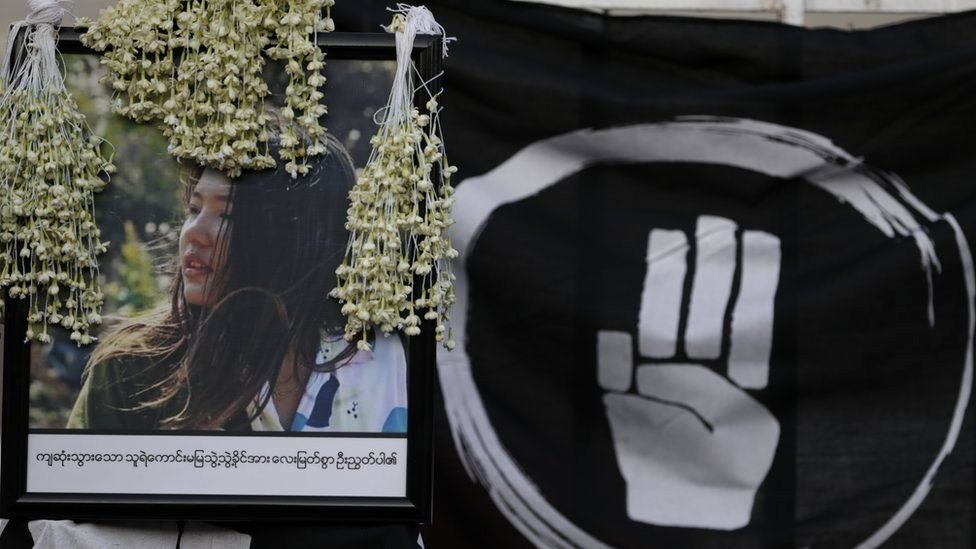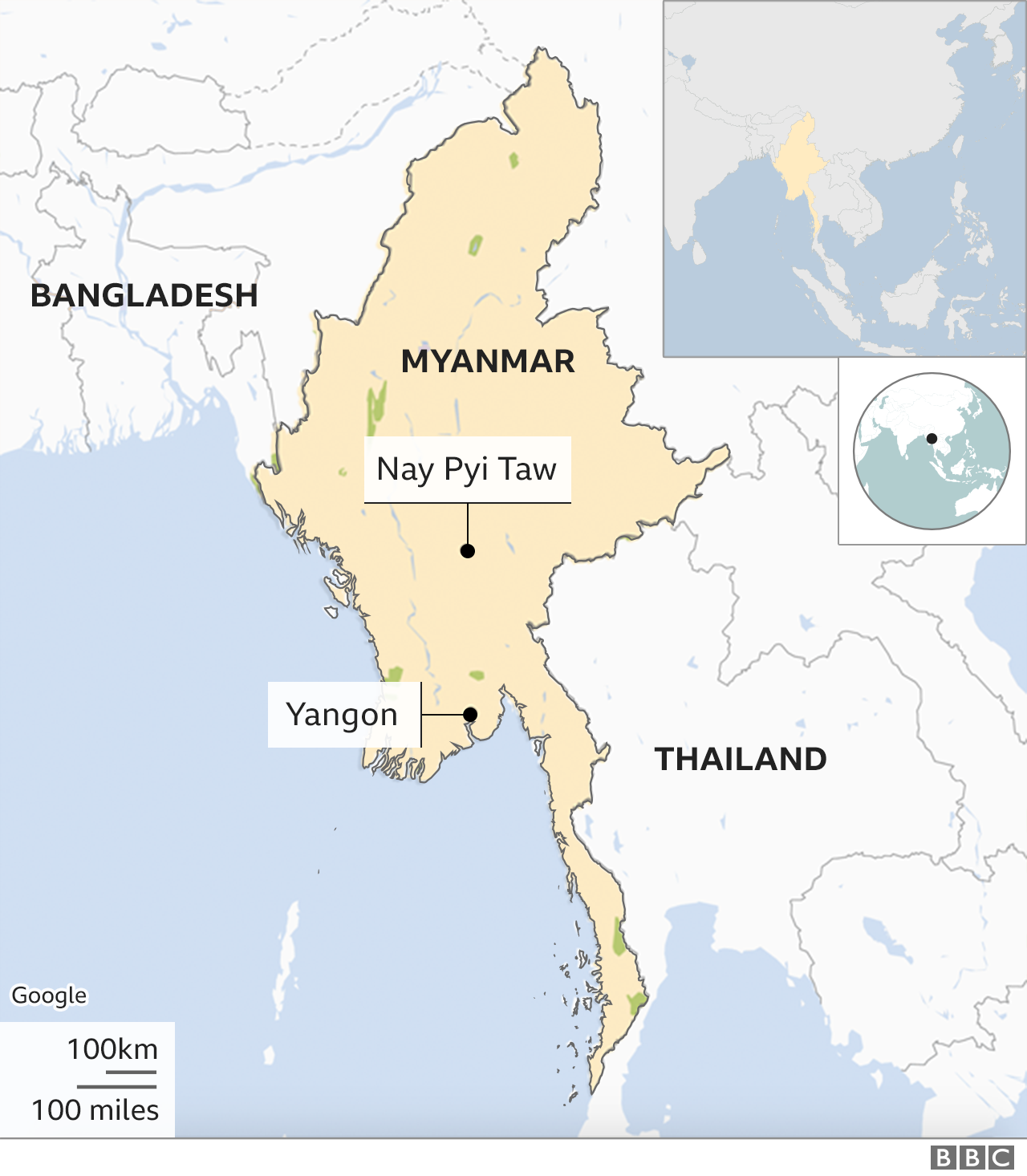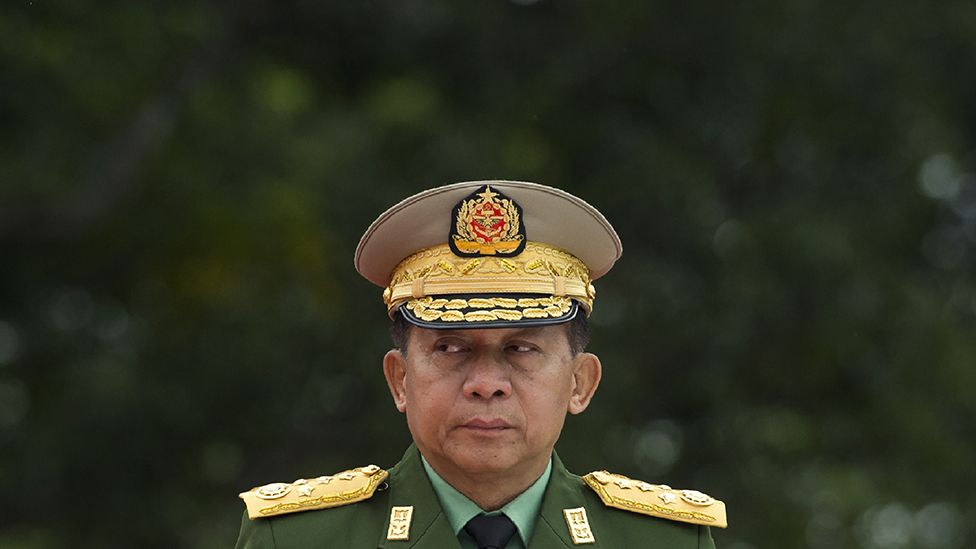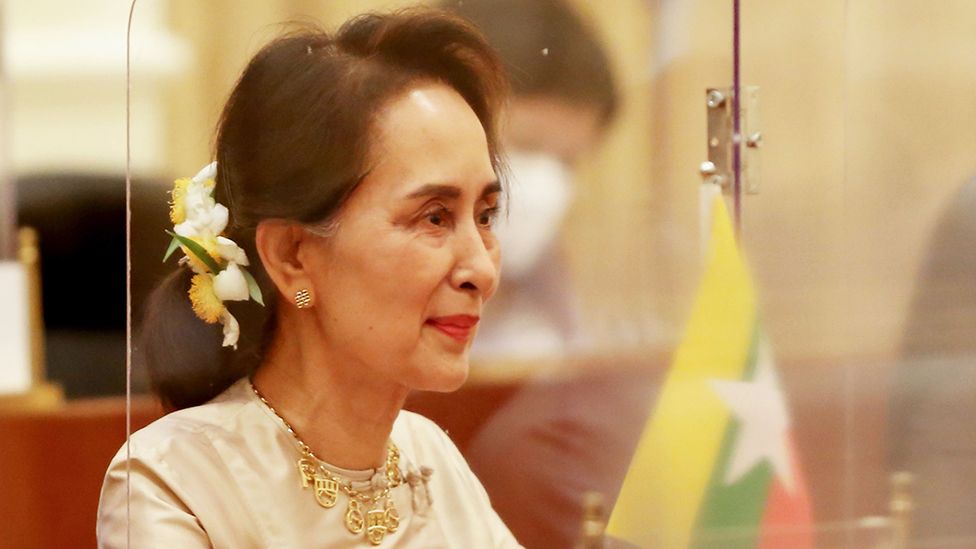Myanmar coup: What is happening and why?
 image copyrightEPA
image copyrightEPAMass protests have been taking place across Myanmar since the military seized control on 1 February.
Elected leader Aung San Suu Kyi and members of her National League for Democracy (NLD) party are among those detained.
Dozens of protesters have been killed.
Where is Myanmar?
Myanmar, also known as Burma, is in South East Asia. It neighbours Thailand, Laos, Bangladesh, China and India.
It has a population of about 54 million, most of whom are Burmese speakers, although other languages are also spoken. The biggest city is Yangon (Rangoon), but the capital is Nay Pyi Taw.
The main religion is Buddhism. There are many ethnic groups in the country, including Rohingya Muslims.
The country gained independence from Britain in 1948. It was ruled by the armed forces from 1962 until 2011, when a new government began ushering in a return to civilian rule.


Why is Myanmar also known as Burma?
The ruling military changed the country's name from Burma to Myanmar in 1989. The two words mean the same thing but Myanmar is the more formal version.
Some countries, including the UK, initially refused to use the name as a way of denying the regime's legitimacy.
But use of "Myanmar" has become increasingly common, and in 2016 Ms Suu Kyi said it did not matter which name was used.
What has happened now, and why?
The military is now back in charge and has declared a year-long state of emergency.
It seized control on 1 February following a general election which Ms Suu Kyi's NLD party won by a landslide.
The armed forces had backed the opposition, who were demanding a rerun of the vote, claiming widespread fraud.
The election commission said there was no evidence to support these claims.
The coup took place as a new session of parliament was set to open.
Ms Suu Kyi has been held at an unknown location since the coup. She is facing various charges, including possessing illegal walkie-talkies, violating Covid-19 restrictions during last year's election campaign and publishing information that may "cause fear or alarm".
NLD MPs who managed to escape arrest formed a new group in hiding. Their leader has urged protesters to defend themselves against the crackdown.
Who is in charge now?
Military commander-in-chief Min Aung Hlaing has taken power.
He has long wielded significant political influence, successfully maintaining the power of the Tatmadaw - Myanmar's military - even as the country moved towards democracy.
 image copyrightGetty Images
image copyrightGetty ImagesHe has received international condemnation and sanctions for his alleged role in the military's attacks on ethnic minorities.
In his first public comments after the coup, Gen Hlaing sought to justify the takeover. He said the military was on the side of the people and would form a "true and disciplined democracy".
The military says it will hold a "free and fair" election once the state of emergency is over.
How have people reacted?
The protests over the coup have been the largest since the so-called Saffron Revolution in 2007, when thousands of monks rose up against the military regime.
Protesters include teachers, lawyers, students, bank officers and government workers.
The military has imposed restrictions, including curfews and limits to gatherings.
Security forces have used water cannon, rubber bullets and live ammunition to try to disperse protesters.
Who is Aung San Suu Kyi?
Aung San Suu Kyi became world-famous in the 1990s for campaigning to restore democracy.
She spent nearly 15 years in detention between 1989 and 2010, after organising rallies calling for democratic reform and free elections.
She was awarded the Nobel Peace Prize in 1991 while under house arrest.
In 2015, she led the NLD to victory in Myanmar's first openly contested election in 25 years.
 image copyrightGetty Images
image copyrightGetty ImagesWhat about the crackdown on Rohingya?
Ms Suu Kyi's international reputation has suffered greatly as a result of Myanmar's treatment of the Rohingya minority.
Myanmar considers them illegal immigrants and denies them citizenship. Over decades, many have fled the country to escape persecution.
Thousands of Rohingya were killed and more than 700,000 fled to Bangladesh following an army crackdown in 2017.
Ms Suu Kyi appeared before the International Court of Justice in 2019, where she denied allegations that the military had committed genocide.
What has the international reaction been to the coup?
Numerous countries have condemned the military takeover. UN Secretary-General António Guterres said it was a "serious blow to democratic reforms".
The US and UK have responded with sanctions on military officials.
China blocked a UN Security Council statement condemning the coup, but has backed calls for the release of Ms Suu Kyi and a return to democratic norms. The country has previously opposed international intervention in Myanmar.
South East Asian countries have been pursuing diplomatic efforts to end the crisis.

Comentarios
Publicar un comentario